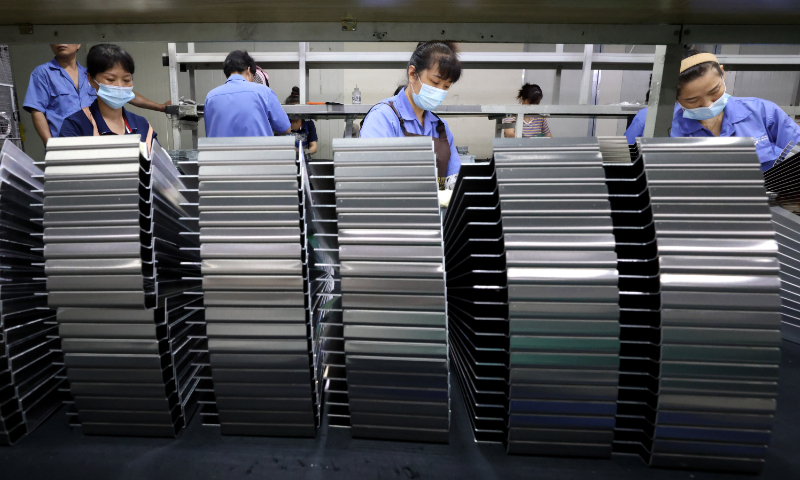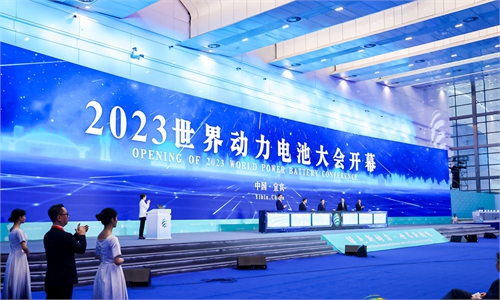Advanced electrode material, needed for making electric batteries, is mass produced in Yunnan, China

Workers produce precision components for new-energy batteries at a factory in Ningde, East China's Fujian Province, on July 20, 2023. Green industries are new growth forces in the national economy. In the first half of 2023, China's exports of electric vehicles, lithium-ion batteries and solar cells increased by 61.6 percent year-on-year, driving overall export growth of 1.8 percentage points. Photo: cnsphoto
An advanced electrode material project for new-energy batteries with an annual output of 10,000 tons entered operation in the Dali Bai Autonomous Prefecture , Southwest China's Yunnan Province on Saturday, which is estimated to consume 50,000 tons of walnut shells each year, per media reports on Monday.
The project, with a total investment of 220 million yuan ($30.62 million), can efficiently utilize walnut shells for producing hard carbon as an anode material for sodium-ion batteries, while yearly output value can reach 500 million yuan, local media outlet Dali Daily reported.
The operation of the projects could reduce reliance on imported coconut shells for producing hard carbon for sodium-ion batteries, according to the paper.cn.
Coconut shells are an ideal option for producing hard carbon while the supply of domestic raw materials remains stretched leading to a heavy reliance on imports, such as from the Philippines and Indonesia, the paper.cn report noted. The coconuts originate from South China's Hainan Province, a major hub for supplying domestic coconuts, have slightly thinner shells with a lower density.
In comparison, China has a huge planting area for walnuts especially in Yunnan, Southwest China's Sichuan Province and Northwest China's Xinjiang region. In 2020, the nation recorded a total of walnut plating area for 117 million mu (7.8 million hectares) with an annual output of 4.80 million tons, ranking the first worldwide, according to official data.
Among the major walnut production regions, Yunnan ranks the first in the country, with a total output of 1.6 million tons, worth of 45.1 billion yuan, in 2021.
The paper.cn report noted that if the walnut shells are successfully adapted for commercial use in hard carbon production on a large scale, it would further boost the development of domestic sodium-ion batteries by reducing costs and accelerating the industrialization.
The use of sodium-ion batteries has been approved for manufacturing some domestic new-energy vehicles by China's Ministry of Industry and Information Technology (MIIT) in June, according to the paper.cn.
However, the industrial development for sodium-ion batteries is still at an early stage that has initially met the conditions for industrialization, said Jin Lei, an official with MIIT in July, adding that more work would be needed for further promoting its progress.
Global Times



